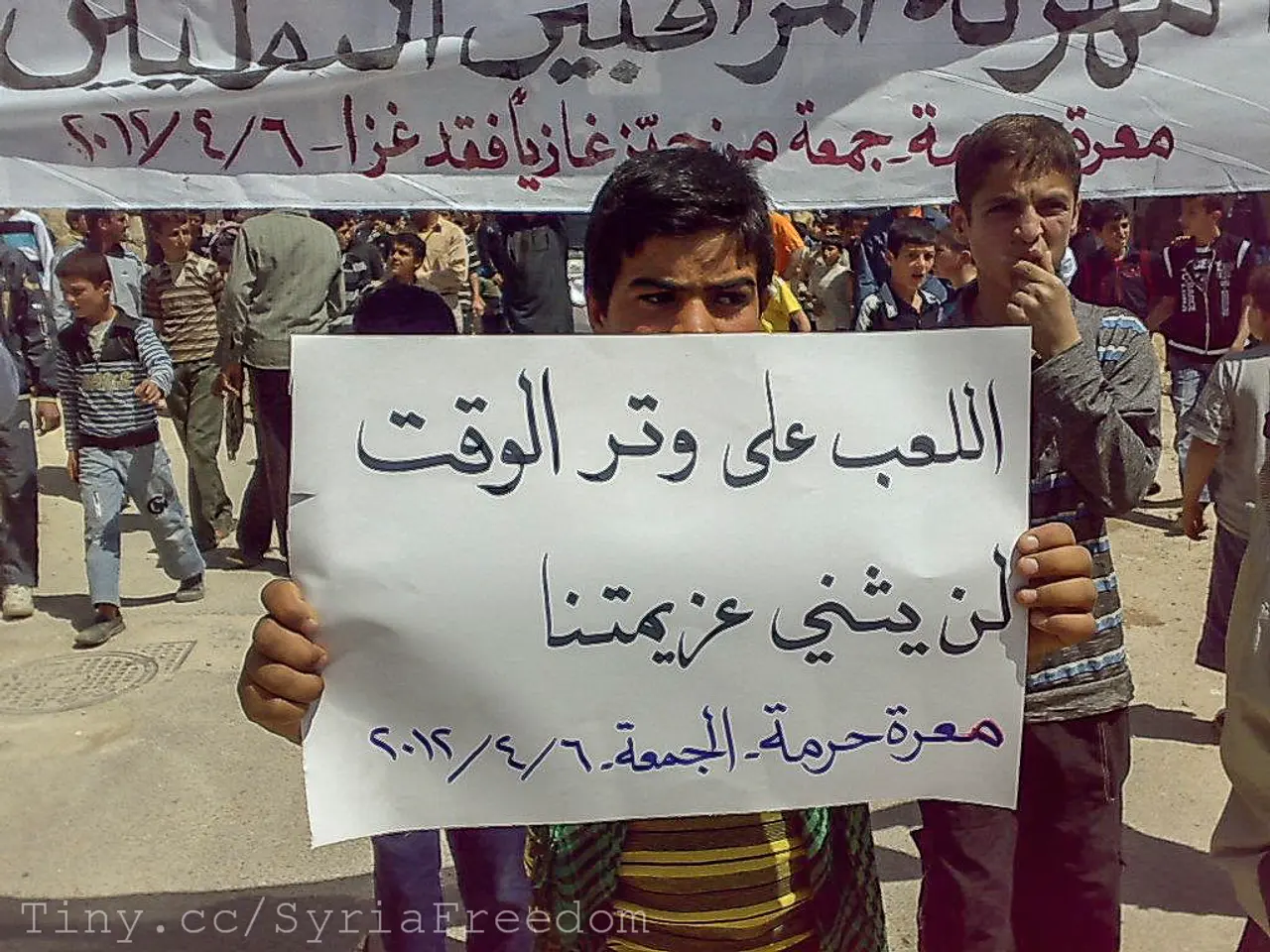EU Faced with Urge from Diaz to Respond to Hungary's Pride Ban: "Can't Afford Ignorance"
Unfiltered Response: Yolanda Díaz Slams EU Inaction on Hungary's LGBTQ+ Rights Ban
Yolanda Díaz, Spain's second deputy prime minister and labor minister, has blasted the European Union for failing to respond adequately to Hungary's ban on the Budapest Pride march. In a fiery statement, Díaz accused the Hungarian government, led by Viktor Orbán, of violating human rights and demanded that Europe take action.
"Human rights are under attack in the heart of Europe, and Europe needs to react," Díaz asserted, flanked by Minister of Culture Ernest Urtasun in Budapest. Díaz plans to attend the Pride march this Saturday, regardless of the official ban, to celebrate the conquest of fundamental rights and send a message that human rights are non-negotiable.
Díaz criticized the European Union for not doing enough to protect human rights, especially in light of the Hungarian government's repeated violations. She called on the EU to reclaim its roots, freedoms, and commitment to human rights, and to denounce the ban on the Pride march as a violation of the human rights convention.
Urtasun echoed Díaz's sentiments, stating that Pride cannot be persecuted, banned, or silenced. He also expressed concern over the progress of LGBTQ+ rights in Hungary and vowed that the Spanish government would continue to fight for the rights and freedoms of the LGBTQ+ community.
In March 2025, the Hungarian parliament explicitly banned Pride events, restricting freedom of assembly and expression related to LGBTQ+ issues. This ban was reinforced by an amendment to the Hungarian Constitution in April 2025 and linked to an earlier 2021 law prohibiting the public portrayal of homosexuality and gender identity to minors. The Hungarian Supreme Court upheld the police ban on the Pride march despite challenges involving the European Convention on Human Rights and the Court of Justice of the European Union.
Rights groups have criticized the European Commission for not opening an infringement procedure against Hungary for violating EU law with its use of facial recognition technology to identify Pride participants. The European Parliament has also condemned Hungary's law as a violation of basic rights and freedoms protected under EU standards.
Tens of thousands of activists have prepared to march in defiance of the ban, emphasizing that they will not be intimidated by governmental repression. The Mayor of Budapest has supported holding Pride as a municipal event, arguing that it does not require police approval.
Amnesty International and other human rights organizations have strongly condemned Hungary's ban, calling on authorities to lift restrictions, repeal discriminatory laws, and ensure the safety of Pride participants.
Insight: The European Union's response to the ban on the Budapest Pride march has involved strong criticism and calls for action against Hungary's restrictive measures on LGBTQ+ rights and freedom of assembly.
[1] European Parliament Briefing on Hungary's ban on Budapest Pride: https://www.europarl.europa.eu/RegData/etudes/IDAN/2023/686617/IPOL_IDA(2023)686617_EN.pdf
[2] Court of Justice of the European Union case concerning Hungary's Pride march ban: https://curia.europa.eu/jcms/upload/docs/application/pdf/2023-04/cp230146en.pdf
[3] Amnesty International statement on Hungary's ban on Budapest Pride: https://www.amnesty.org/en/latest/news/2023/06/hungary-must-lift-prohibition-on-budapest-pride-parade/
[4] European Commission response to rights groups' pressure regarding Hungary's use of facial recognition technology at Pride marches: https://ec.europa.eu/commission/presscorner/detail/en/qanda_231004
[5] Budapest Mayor's statement on the municipal status of Budapest Pride: https://budapest.hu/en/news/budapest-mayor-tas-calls-parliament-reset-multi-ethnic-approach-multiculturalism-and-tolerance
Related Topics:- Hungarian government's restrictions on LGBTQ+ rights- Freedom of assembly and expression- European Union's response to human rights violations- Budapest Pride march ban- Discrimination against LGBTQ+ community in Hungary- Amnesty International's stance on Hungary's LGBTQ+ rights issues
- The European Parliament, following the ban on the Budapest Pride march, has acknowledged the grave infringement on human rights and called for a reevaluation of the European Union's politics in respect to general-news situations such as these, urging action against Hungary's restrictive measures on LGBTQ+ rights and freedom of assembly.
- In the face of Hungary's restriction on Pride events, cultural organizations like Amnesty International have vocalized their concerns, urging the immediate repeal of discriminatory laws and the lifting of restrictions against the LGBTQ+ community to uphold the principles of human rights and equality, integral to the core of European culture and political ethos.





